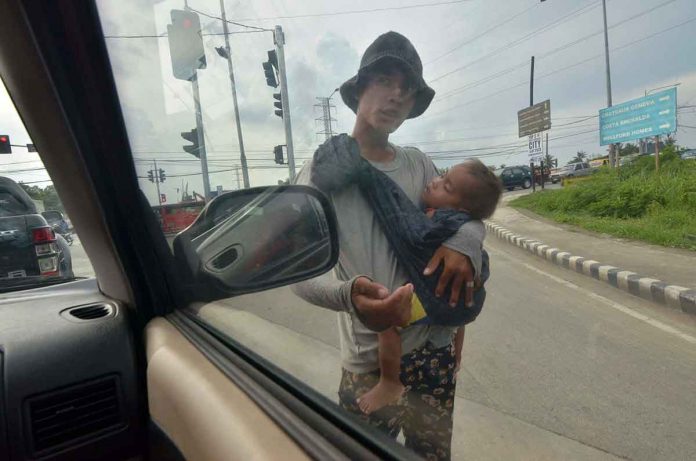
ILOILO City – As the holiday season approaches and travel protocols due to coronavirus disease 2019 (COVID-19) continue to loosen up, mendicant Badjaos have also returned to this southern city and started roaming around asking for alms.
According to Mayor Jerry P. Treñas, Badjaos return to Iloilo every time the Christmas season is approaching.
Also, every year the city government rounds them up and sends them back to their places of origin, he said.
“It’s usual nga kada padulong ang Paskwa gaalabot na sila, may mga envelopes. (But) we do not allow that,” Treñas said.
The City Social Welfare and Development Office (CSWDO), Iloilo City Police Office (ICPO), Philippine Ports Authority, and Philippine Coast Guard have started discussions on the Badjao problem.
Treñas said the city government will send the Badjaos back to their home provinces. However, it has no exact number yet.
Badjaos can be seen traipsing the city’s thoroughfares asking for alms from motorists, unmindful of their safety. They get into jeepneys and beg from the passengers. Some have envelopes with solicitation notes.
In Iloilo City, giving and begging alms are punishable under City Regulation Ordinance 2002-400.
The ordinance provides that mendicants “caught begging are liable to fines of P500, imprisonment of not more than a year or both fine and imprisonment.”
Meanwhile, giving alms to beggars is punishable by a fine of P500 or community service.
Any person, syndicate, or group who uses and exploits minors, disabled and infirm people in the mendicancy trade faces a P2,000 fine and up to two months in prison.
The Badjaos, widely known as “sea gypsies”, are an ethnic group scattered along the coastal areas of Tawi-Tawi, Sulu, Basilan, and some coastal municipalities of Zamboanga del Sur in the Autonomous Region in Muslim Mindanao.
Because of the conflict between Muslim separatists and government troops and the lack of livelihood opportunities, many Badjaos left Mindanao.
In 2019, Treñas even asked the National Bureau of Investigation and ICPO to verify reports that criminal syndicates could be behind the proliferation of Badjao beggars here.
The Public Safety and Transportation Management Office (PSTMO) discovered as early as 2018 that Badjao mendicants would send back to where they came from the money they collected here via money remittance centers.
In a previous report, PSTMO chief Jeck Conlu disclosed that the Badjao beggars here were from Zamboanga and Jolo.
“Didto sila nagapadala sang kwarta. Mga dalagku nga amount,” said Conlu.
He added that they received information that someone or some groups from where the Badjaos came from facilitated their travel to Iloilo City.
The Badjaos stopped coming back to Iloilo when COVID-19 struck in 2020 until recently./PN




